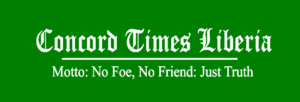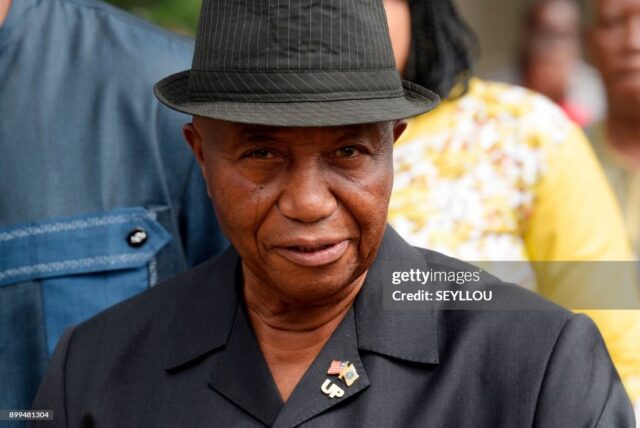In less than ten months since taking office, President Joseph N. Boakai’s administration is grappling with growing allegations of corruption, prompting critical thinkers within the government to question his leadership style. Despite a promising start, the alarm bells are ringing as citizens express dissatisfaction with the current state of affairs.
Bomi County Senator Edwin Melvin Snowe has voiced his frustration over the perception that the Coalition for Democratic Change (CDC) under former President George Weah was mired in corruption, while the Unity Party (UP), led by Boakai, was seen as a beacon of integrity. “Nine months ago, we were led to believe that everything about the CDC is criminal and everything associated with the UP is good. But it appears those who claimed to be good at the time are now worse than those they called criminals. This is embarrassing,” Snowe stated during a live interview on SpoonTalk Sunday evening.
Central to the controversy is an off-budget expenditure of nearly $16 million, which Snowe has condemned as both wrong and illegal. According to independent sources, several budget line items have failed to reach their intended targets, leaving citizens feeling betrayed by their leaders. Reports indicate that the Boakai government has spent over $15.6 million on unbudgeted items in less than eight months, as revealed by the Ministry of Finance and Development Planning. This practice has drawn criticism, as it mirrors the actions of previous administrations that were heavily scrutinized for similar financial mismanagement.
Key expenditures include:
– $2.3 million on “unexplained miscellaneous” expenses
– $2 million for National Security Agency (NSA) covert operations
– $1.5 million for special sessions of the House of Representatives
– $812,612 for special sessions of the Senate
– $250,000 for the completion of a VIP Lounge
– $1,123,000 for the purchase of armored vehicles for the President and Vice President
Additionally, concerns have arisen over the Minister of Commerce Amin Modah receiving a customized Suburban van, valued at over $100,000, raising questions about the government’s financial priorities amidst widespread allegations of corruption.
As the Boakai administration continues to face scrutiny, many Liberians are left pondering the implications of these developments. Representative Musa Bility suggested in a recent interview that President Boakai may be politically compromised by his own officials, further complicating the administration’s ability to address the growing crisis.
Currently, President Boakai is in New York, meeting with Liberians in the diaspora and thanking them for their support in rescuing the nation. He remarked that the situation would have been dire had Weah secured a second term, asserting that Liberia is now on a path to recovery. However, skepticism remains regarding how significant progress can be made while significant corruption persists under his watch.
As the government approaches its first year in office, the pressure to demonstrate accountability and transparency is mounting. The future of Boakai’s leadership—and the well-being of Liberia—hangs in the balance.








